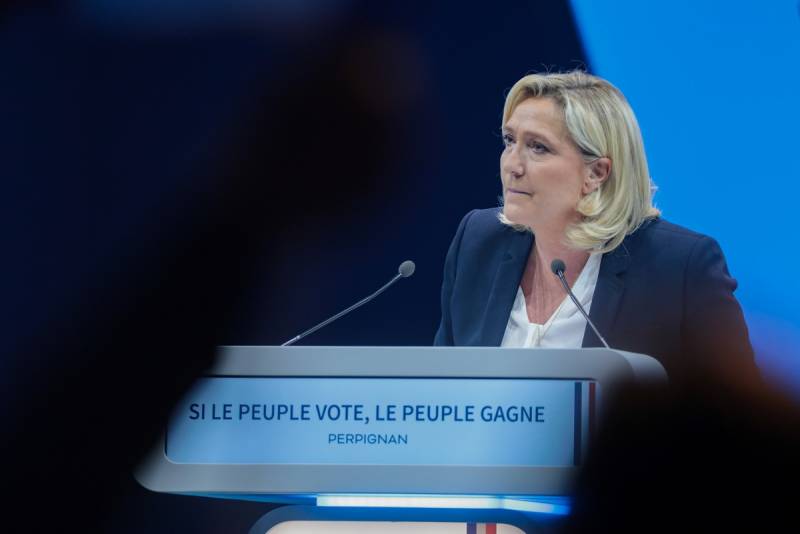Washington fears possible victory for "pro-Russian" Le Pen in France
While the Pentagon was expressing a desire to see "Russia's defeat in Ukraine," an unpleasant surprise awaited Washington in the news from France. According to the latest sociological research, presidential candidate Marine Le Pen has every chance of defeating the current head of state, Emmanuel Macron. Such information greatly disturbed the White House, which is "closely watching" the election campaign of its faithful ally. About it writes the publication Politico.
According to representatives of the Washington political elites, a possible Le Pen victory would cast doubt on North Atlantic unity and destabilize the currently strong Western anti-Russian coalition. Moreover, the White House is confident that in the long run, Le Pen may cause the collapse of NATO, as the current presidential candidate sows doubts about the need for some countries to participate in the alliance.
The United States has been too concentrated on Ukraine for the past few months, so unpleasant news from the "backyard" of the coalition forced to pay attention to the long-forgotten direction of foreign policy. Perhaps Washington was still expecting a “wrong” transition of power in Germany, but not in France. So far, the opposite is happening, so there are concerns.
Marine Le Pen's Presidency Will Be America's Huge Defeat and Russia's Biggest Victory
- Politico quotes its sources in the administration.
On the whole, it must be admitted that Le Pen's victory is by no means guaranteed. However, in Washington they are reinsuring themselves and preparing a plan "B". The events in Ukraine have turned the heads of overseas strategists, because once again a very profitable “ghost” of the world war and big money, proceeds from the sale of grief and misfortune to the warring countries, is wandering in the world. The United States simply cannot afford to get a stab in the back from an ally now, which is why they are so seriously worried, in fact, from scratch.
Calling Le Pen pro-Russian is unlikely to succeed. One can draw very appropriate parallels with the US elections in 2016, when the supposedly pro-Russian Donald Trump won, after which the Russian Federation received one of the most principled opponents of Russia and personally President Vladimir Putin.
For example, the candidate from the "National Association" Le Pen repeatedly repeated at her rallies and interviews that she would maintain anti-Russian sanctions if she was elected head of state. She opposed the special operation of the Russian Federation in Ukraine, and also called for abandoning Russian energy sources. Therefore, to consider her victory a success for Russia, to put it mildly, is frivolous. However, the fact is that Washington really doesn't want to see her as president of France.
- twitter.com/MLP_officiel

Information